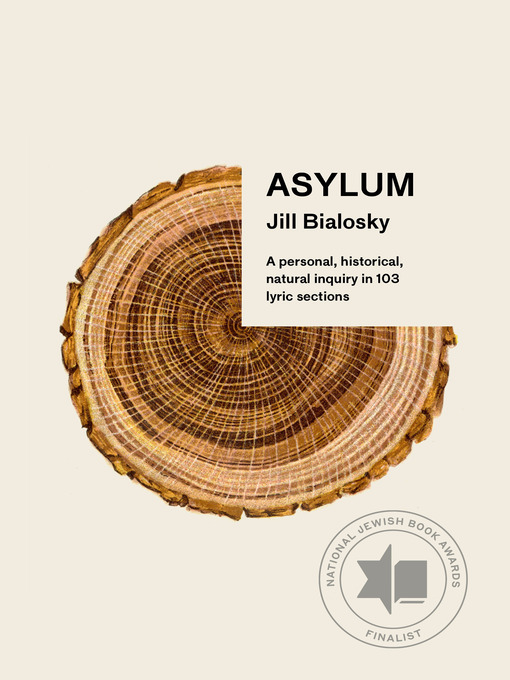
In Asylum, poet Jill Bialosky embarks on a Virgilian journey, building a narrative sequence from 103 elegant poems and prose sections that cohere in their intensity and their need to explore darkness and sustenance both.
Taken together, these piercing pieces—about her nascent calling as a writer; her sister's suicide and its still unfolding aftermath; the horror unleashed by World War II; the life cycle of the monarch butterfly; and the woods where she seeks asylum—form a moving story, powerfully braiding despair, survival, and hope. Bialosky considers the oppositions that govern us: our reason and unreason, our need to preserve and destruct. "What are words when they meet the action of what they attempt to modify?" she asks, exploring the possible salve of language in the face of pain and grief.
What Asylum delivers is a form of hard-won grace and an awareness of the cost of extreme violence, inexplicable loss, and the miraculous cycles of life, in work that carries Bialosky's art to a new level of urgency and achievement.
-
Creators
-
Publisher
-
Release date
August 4, 2020 -
Formats
-
Kindle Book
-
OverDrive Read
- ISBN: 9780525657101
-
EPUB ebook
- ISBN: 9780525657101
- File size: 1815 KB
-
-
Accessibility
-
Languages
- English
-
Reviews

Loading
Why is availability limited?
×Availability can change throughout the month based on the library's budget. You can still place a hold on the title, and your hold will be automatically filled as soon as the title is available again.
The Kindle Book format for this title is not supported on:
×Read-along ebook
×The OverDrive Read format of this ebook has professional narration that plays while you read in your browser. Learn more here.